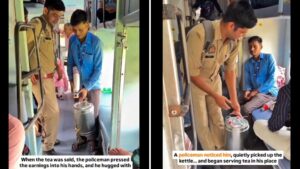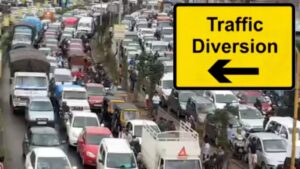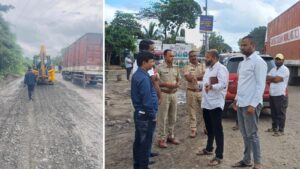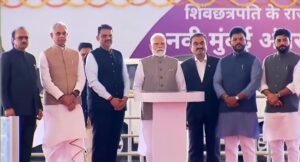10-Minute Deliveries in a City Where Even Ambulances Struggle: Are We Trading Lives for Speed?
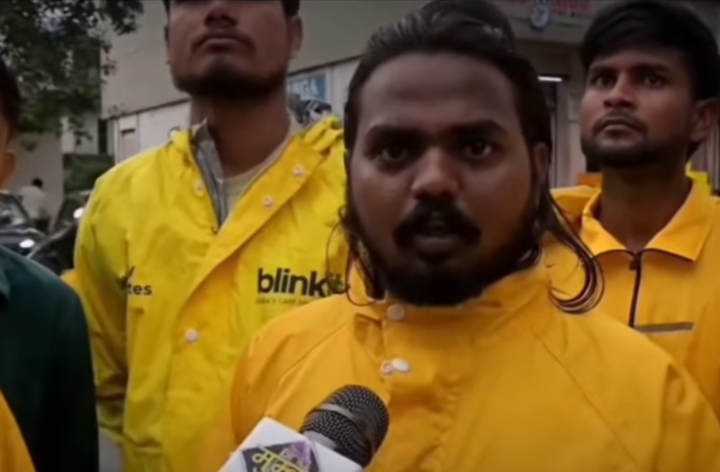
10-Minute Deliveries in a City Where Even Ambulances Struggle: Are We Trading Lives for Speed?
While countries like the U.S. or Japan boast of smooth roads, disciplined traffic, and structured urban planning—making instant deliveries a practical reality—the story is starkly different in Indian cities like Mumbai. With crumbling infrastructure, flooded streets, and unpredictable traffic signals, the dream of delivering groceries in under 10 minutes can feel less like a customer convenience and more like a life-threatening race.
In a recent video that has gone viral on social media, a delivery executive opens up about the real challenges of navigating Mumbai’s monsoon-soaked streets. The footage, originally shared on Instagram by the page @jalpanaswain, has struck a chord with over 900,000 viewers. But beyond the views, it has sparked a larger conversation: At what cost are these rapid deliveries being made?
The delivery worker highlights a grim reality: “In India, even an ambulance or police can’t arrive in 10 minutes. So how can you expect us to deliver groceries that quickly?” He explains that a single traffic signal eats up nearly a minute, and with multiple stops, the total time lost quickly adds up. Reaching the store, picking up the order, and navigating to the customer’s location—often in knee-deep water—adds more time. Yet, expectations remain rigid, and delays, even by two minutes, lead to harsh scoldings from supervisors.
He also raises a striking comparison between India and countries where 10-minute deliveries might actually work due to better infrastructure. “The roads here aren’t even fit for walking in the rain, and yet we are expected to reach your doorstep within 10 minutes. Foreign delivery models cannot be blindly applied here,” he says.
What adds to their struggle is that, while companies do offer extra incentives during extreme weather, the rider says that no amount of bonus can compensate for the risks involved. “They’re putting a price on our lives,” he adds. The extra pay may help temporarily, but it doesn’t account for the health hazards, road accidents, or the mental pressure of meeting unrealistic deadlines in dangerous conditions.
It’s not just the journey that’s grueling—sometimes, the destination adds another layer of difficulty. The delivery rider also mentions that while lifts are available in most buildings, they are usually separate service lifts meant for staff or deliveries. Even then, using them isn’t always straightforward—they may be busy, take too long, or in some cases, delivery personnel are not even allowed to use them at all. As a result, riders are often forced to walk up several floors on foot, sometimes as high as the 15th or 20th floor, just to complete one order.
This isn’t an isolated issue. In a past incident, Zomato CEO Deepinder Goyal, while personally delivering orders to understand his team’s ground-level experiences, was denied lift access in a building and had to take the stairs himself.
Adding to this complex situation are growing public concerns about reckless riding. There have been several complaints about delivery riders speeding or ignoring road safety rules—putting not just themselves but others at risk. However, this behavior often stems from the intense pressure to meet rigid delivery time slots rather than sheer carelessness.
The most haunting part of the video comes when the delivery boy says, “They compare our lives to 10 minutes.” A simple statement that encapsulates the emotional weight of a job that often goes underappreciated.
This video has done more than just highlight individual hardship—it has stirred a public response. Many viewers expressed deep respect and concern for delivery personnel, urging society to show more empathy and patience. Perhaps the next time a delivery takes a few extra minutes, it’s worth remembering the hurdles that had to be crossed—both literal and emotional.






